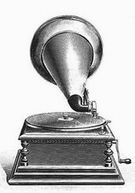| Communities > Amble > Sound | About Contact |

Amble - Sound
Oral History Recording of Mrs. Dawson (1985)

Transcription of an interview with Mrs. Dawson recorded in 1985.
Unfortunatley the Northumberland Record Office does not have any information about Mrs. Dawson except for what she discussed during her interview. She recalled her early schooling at Amble, and the conversion of the Roman Catholic chapel into a schoolroom. She goes on to discuss her early married life during the 1910 coalmining strike.
[Transcription]
Now what about going to school Mrs. Dawson?
Well, we had to walk from the cliff right up to the Catholic school at the top end of Amble. The school everyday, and I went when I was three years old we started school.
Did you, three?
Three year old, we started school them days.
Yes.
And it was trudging up and down four times a day.
Fascinating, and you said that for church the altar was screened off, was it?
Screened off. The church and the school was all one.
This is the Catholic Church?
The Catholic Church that was.
Yes.
On a Sunday the screen was pulled by and there was a lovely altar at the back of the screen.
I see. Now then, if we skip a little bit Mrs. Dawson.
I was married in 1910 when there was a strike on, the miners were on strike, and me and my husband had eight shilling a week between us, in the strike. But of course it couldn't keep us, we had our own houses, well not our own house, but we had a rented house, furnished, and we went to my husbands mother and stayed there until the strike was over.
This tape recording comes from the large collection of oral history recordings held by the Northumberland Archive Service. Interviews were conducted by Record Office staff from the early 1970's right through until the mid 1980's. The purpose of the recordings was to capture the essence of life in the late 19th and early 20th centuries. Many different subjects were covered, including coalmining, farming, fishing, domestic life, World Wars and entertainment. Over 350 recordings have been collected comprising approximately 700 hours of recollections.